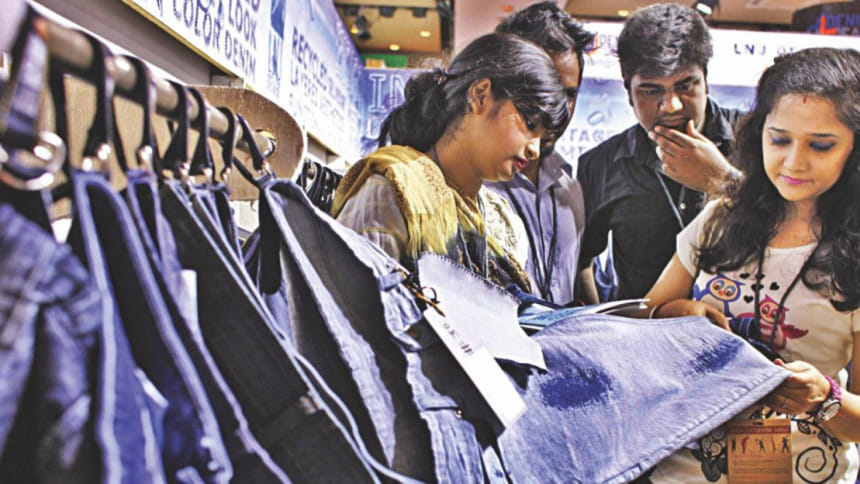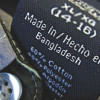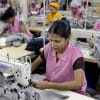Why RMG sector needs a change of mindset

"Change will not come if we wait for some other person, or if we wait for some other time. We are the ones we've been waiting for. We are the change that we seek."
— Barack Obama
As the RMG industry in Bangladesh experiences its most challenging trading period for several years, the above words from the former US president are quite appropriate. Our industry needs to change, we keep being told. It does not innovate enough. It is too commodity focused. It needs to invest in sustainable production. All these things have been said for a great many years, and I have sat in more meetings and attended more conferences where such issues have been highlighted than I care to remember.
I believe there is a more fundamental issue at play here: one of mindset. As humans we are creatures of habit and we are naturally resistant to change. Indeed, whole books have been written on the subject of change management, with a great many reasons offered as to why people within businesses and organisations—including business leaders—resist change.
I believe this is where the problem lies with the RMG sector in Bangladesh. In fact, as I will argue below, I believe this is where the problem lies with the whole apparel value chain.
Few people would disagree that we need to change as an industry to remain relevant in global markets. But, as Barack Obama's quote above highlights, we are often guilty of waiting for another person instead of making changes happen ourselves. It's so much easier to let somebody else take the first steps, and this same argument goes for both RMG factories and their customers, brands and retailers.
Let me start with manufacturers. Are the prices paid by brands too low? Yes, they often are. Is Bangladesh unfairly treated by the international media and is there a lot of inaccurate reporting which paints a negative picture of the RMG industry? There is certainly truth in this. Is a lot of onus being placed on us as suppliers to invest in sustainable solutions which brands get the credit for? Again, there is truth in this.
But the point is that we know all of this. It might not seem fair but then life never is. The above are simple examples of market forces at play.
What we all need to understand is that none of the above issues will change at a fundamental level so the only thing we can do is get on with things and, as Barack Obama says, become the change that we seek.
That means going out and making the investments we need to become competitive. Invest in technology. Invest in R&D. Invest in sustainability. Invest in people.
Moreover, the mindsets of both the employers of our RMG sector and of the employees need to be changed. The apparel industry is not a new industry in our country. But still the level of professionalism among many of the employees in the sector are not up to the expectation. The employers, on the other hand, in the past used to employ underprepared people for this industry who learned through their experience. But now we have a workforce who has education on this industry related subjects. Their talents need to be nurtured and they should be given the opportunities to unleash their potential. As man is certainly more important than machine, the employers should have the mindset to invest in people.
And very importantly, invest in story-telling—stories about success, stories about change-making, stories about struggle and spirit, stories about progress, stories about innovation and ingenuity.
I mentioned brands and retailers above, and I truly believe they face the same conundrum as suppliers. Many are under huge pressure right now as competition is stronger than ever, while at the same time customers expect ever cheaper clothing.
Again, I believe retailers require a huge change of mindset as much as anything else and this change has to start right from the top. The business model many of them follow is not sustainable—we can't keep producing clothing that is cheaper and cheaper. It is also not sustainable either because it is fundamentally bad for the planet.
What I read into all of this is that, firstly, there is a need for the whole industry to recalibrate its mindset—to almost start from scratch. Why are we in business, and what are the limits to the whole value chain from a sustainability perspective? How do we start getting back to value as an industry?
Secondly, we need to collaborate and work together, and this will mean a broader change of mindset. The problems we face are in many cases, shared problems. Lower and lower prices and the need to better conserve precious resources are common industry issues, and they should be addressed collectively.
Adversarial supplier-customer relationships need to become a thing of the past. The challenges we face are too large and complex to tackle as individual businesses and, in many cases, they require closer working relationships across the supply chain.
Collaborative approach among the peers within Bangladesh apparel industry is also the need of the time now. It is also time we share our knowledge, skills and success cases with each other—because it's an industry that has to compete not locally, but globally.
With open minds and a willingness to forge new alliances with customers—and in some cases competitors—there is no reason why we would not be able to successfully tackle all of these challenges if we work together.
Mostafiz Uddin is the Managing Director of Denim Expert Limited. He is also the Founder and CEO of Bangladesh Denim Expo and Bangladesh Apparel Exchange (BAE).
Email: [email protected]

 For all latest news, follow The Daily Star's Google News channel.
For all latest news, follow The Daily Star's Google News channel. 








Comments